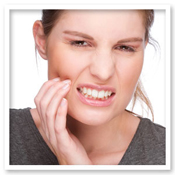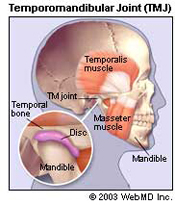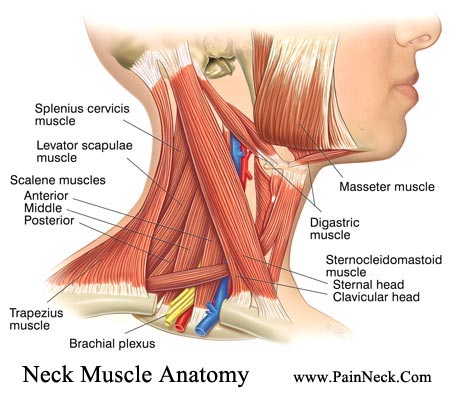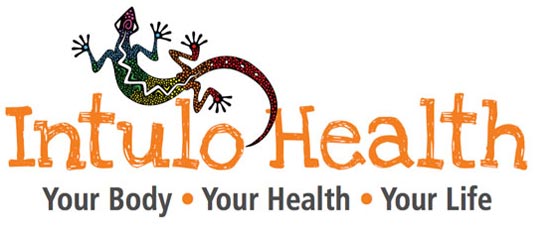Headache, Neck and Back Pain are Symptoms of Grinding Teeth
 Teeth grinding (bruxism) can be the cause of different symptoms which include facial pain, migraines, headaches, ear-ache, tightness and stiffness in the shoulders, pain and stiffness in the jaw joint, abnormal tooth wear and restless or disrupted sleep.
Teeth grinding (bruxism) can be the cause of different symptoms which include facial pain, migraines, headaches, ear-ache, tightness and stiffness in the shoulders, pain and stiffness in the jaw joint, abnormal tooth wear and restless or disrupted sleep.
Although teeth grinding can be caused by stress and anxiety, it often occurs during sleep and is more likely caused by an abnormal bite or missing teeth. However involuntary clenching of the teeth and jaw bracing in reaction to certain stimuli plays a role too. So while we’re awake we could be clenching jaw in reaction to stress or other factors like the style of work we do, some people clench whilst concentrating or doing physical work like lifting and pushing heavy objects. Whilst sleeping teeth grinding is automatic with rhythmic and sustained jaw muscle contractions. There are certain medications that can cause teeth grinding such as antidepressants or recreational drugs such as cocaine and ecstasy, and disorders such as Parkinson’s disease, depression and major anxiety.
 The jaw, jaw joint and surrounding facial muscles control chewing and moving the jaw. Disorders with these are incorrectly called TMJ which stands for temporomadibular joint. The TMJ is the hinge joint that connects the lower jaw to the temporal bone of the skull, which is immediately in front of the ear on each side of the your head. The joints are flexible, allowing the jaw to move smoothly up and down and side to side and enabling you to talk, chew, and yawn. Muscles attached to and surrounding the jaw joint control the position and movement of the jaw. Injury to the jaw, TMJ, or muscles of the head and neck such as a heavy blow or whiplash can naturally cause problems in this area. Other causes are grinding of the teeth, which puts a lot of pressure on the jaw, and Stress, which can cause a person to tighten facial and jaw muscles or clench the teeth. Migraines, headaches, TMJ and jaw pain have long been treated using drugs, aimed at settling symptoms produced by the Trigeminal ‘Migraine’ nerve. Jaw pain, Headaches and Migraines often occur together as the same nerve supplies the same area of the jaw and head.
The jaw, jaw joint and surrounding facial muscles control chewing and moving the jaw. Disorders with these are incorrectly called TMJ which stands for temporomadibular joint. The TMJ is the hinge joint that connects the lower jaw to the temporal bone of the skull, which is immediately in front of the ear on each side of the your head. The joints are flexible, allowing the jaw to move smoothly up and down and side to side and enabling you to talk, chew, and yawn. Muscles attached to and surrounding the jaw joint control the position and movement of the jaw. Injury to the jaw, TMJ, or muscles of the head and neck such as a heavy blow or whiplash can naturally cause problems in this area. Other causes are grinding of the teeth, which puts a lot of pressure on the jaw, and Stress, which can cause a person to tighten facial and jaw muscles or clench the teeth. Migraines, headaches, TMJ and jaw pain have long been treated using drugs, aimed at settling symptoms produced by the Trigeminal ‘Migraine’ nerve. Jaw pain, Headaches and Migraines often occur together as the same nerve supplies the same area of the jaw and head.
 Research shows that around 48% of Migraines are reported to begin in the mornings, mainly from the effects of grinding and clenching your teeth at night combined with muscle spasm and pain at rest in the muscles of your face, neck and shoulders.
Research shows that around 48% of Migraines are reported to begin in the mornings, mainly from the effects of grinding and clenching your teeth at night combined with muscle spasm and pain at rest in the muscles of your face, neck and shoulders.
People suffering from Migraines & Jaw Pain have several habits and physical characteristics in common which irritate the Jaw & Migraine nerve:
- Grinding and clenching your teeth at night
- Stiffness, tightness & pain in the muscles of your face, neck and upper shoulders
- Problems with the joints in your neck
- Poor posture, habits and Ergonomics (and you all know how much I love to harp on about poor posture)
So how can we help you at Intulo Health if you suffer with any of the above.
We assess the muscles and joints in the face, neck and upper back which can irritate the Migraine and Jaw nerve. We then treat these with specific manual therapy techniques to relieve the compression stresses they place on the structures and nerves supplying the head. You will also be given exercises, stretches, and releases to your muscles to improve your posture. Simples...
If you think this article applies to you then please do not hesitate to contact Amanda on 07789 810752 ... For a FREE 20 minute assessment
Remember to 'like' our facebook page as well to keep up to date with all of our latest news!
Written by Bournemouth based remedial massage therapist Amanda Burger


